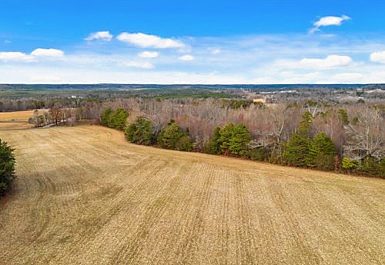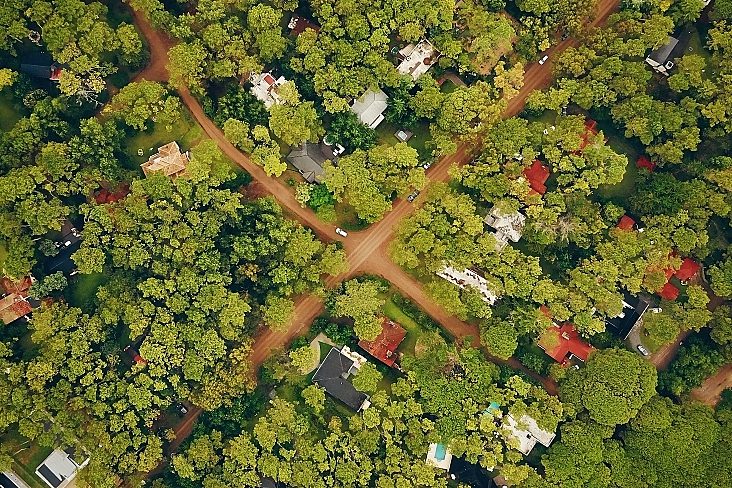Sell Land for Cash in South Carolina
South Carolina Land Buyers
Sell Land for Cash in South Carolina
South Carolina Land Buyers
Selling land in South Carolina doesn’t have to be a long, drawn-out process. Whether you’re looking to cash out quickly or just want to avoid the usual real estate hurdles, there are proven strategies to help you sell fast. This guide breaks down the key steps and insider tips to get your property off the market in no time, without sacrificing value. Let’s dive in and get your land sold, hassle-free!
Sell Your Vacant Land in South Carolina


Want to sell your land in South Carolina fast? Let’s make it easy. At Bubba Land Company, we specialize in helping you sell land quickly, cutting out the hassle entirely. We’ll make you a fast cash offer and close in under 30 days—no bank approvals, no financing headaches, just cash in your pocket when you need it.
Selling land directly to us means you skip the listing fees and middlemen. We evaluate your land, offer a fair price, and let you decide—no pressure, no strings attached. We’re transparent, honest, and dedicated to making the process fast and stress-free.
We understand selling land can be emotional, but we’re here to make it smooth. Having been in South Carolina’s real estate scene for years, we know the land’s value inside and out. Our offers are grounded in real worth, and we keep communication clear and simple from start to finish. Reach out today to see how we can help you sell your land fast and get cash in hand.

“Thank you, that went quiet well, and I got my check just before going on a 4-week vacation.”

“It was our pleasure working with you & your wife… Good luck to you & your company.”

“Thanks to you and your guidance. It was a pleasure working with you. I am so glad we did everything through a law firm. I even learned a lot on the way…”

“It was a delight working with you. Thank you for reaching out to buy my property.”
The Bubba Land Closing Process

Need to sell your property fast? Bubba Land Company is here to help. We specialize in making the process of selling land quick and simple, especially when you’re dealing with financial challenges like back taxes or unexpected expenses. We’ll settle those debts for you and offer a fair cash proposal based on the true value of your land, thanks to our deep knowledge of the South Carolina market.
Our personalized approach means we tailor our service to fit your needs, making the experience smooth and hassle-free. We pride ourselves on honesty and transparency, building trust as we guide you through the sale. No matter the condition of your property—whether it’s tied up in legal issues or burdened by taxes—we’re ready to make a fair cash offer. We handle everything, from drafting the sale agreement to finalizing the deal, so you can avoid any surprises at closing.
With Bubba Land Company, you can expect a quick, straightforward sale, allowing you to move forward without the stress.
South Carolina Counties Where We Buy Land
In search of a reliable buyer for your land in South Carolina? Bubba Land Company is at your service. Our seasoned team is keen on acquiring various types of land across South Carolina, from the untouched rural expanses and undeveloped plots to specialized advertising spaces, residential neighborhoods, and agricultural properties, especially in areas like Greenville County, Richland County, and York County.
Looking to liquidate land in Spartanburg County, or perhaps you’re aiming to offload a plot in Lexington County? Bubba Land Company is prepared to extend a competitive cash offer. We recognize the diversity in every landowner’s circumstances, prompting us to tailor our services to meet your individual requirements. Connect with us to facilitate a smooth transaction to sell South Carolina land, transforming your land into cash expediently.
South Carolina Cities Where We Buy Land
At Bubba Land Company, we offer competitive cash proposals for properties in Charleston, Columbia, North Charleston, and across South Carolina. Tailored to fit your specific situation, our approach ensures a fast and streamlined selling experience. Get in touch today to explore our process for buying vacant land and see how we can transform your property into cash effortlessly.
Final Tips to Sell My Land South Carolina
When it comes to buying and selling lots and land, working directly is often the smartest choice. Real estate agents typically don’t dedicate the same time or effort to land sales as they do for houses. Commissions are lower, and the land market tends to move slower. Listing a parcel on the MLS often inflates the price to cover agent commissions and additional fees, which cuts into your profit. With less focus on marketing, the land sits on the market, leading to price cuts again and again.
At Bubba Land Company, we specialize in land. We’ll give you a fair, all-cash offer for your property, backed by the knowledge and commitment to help you achieve your real estate goals. We’re ready to buy today—no need to wait on banks or deal with unnecessary fees and agents. You can sell your land quickly and for a great price! After reviewing your property, we’ll make you a simple, no-hassle cash offer. If you accept, we can close fast, on your schedule. It’s straightforward—you decide if the offer works for you.






